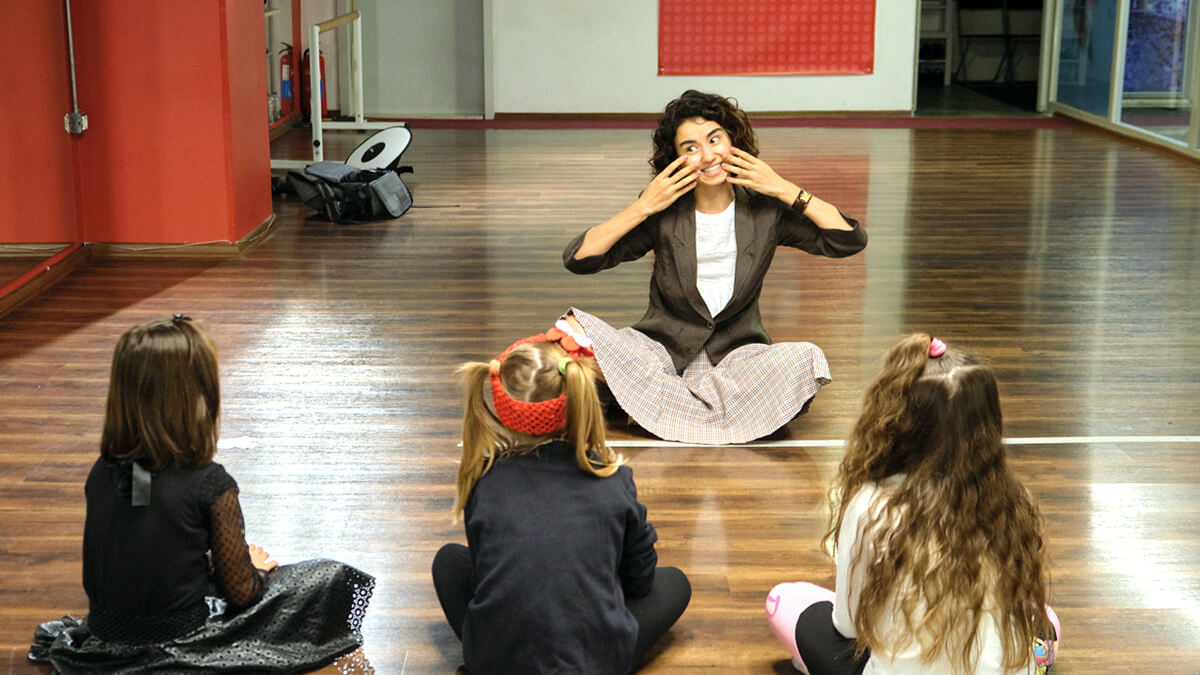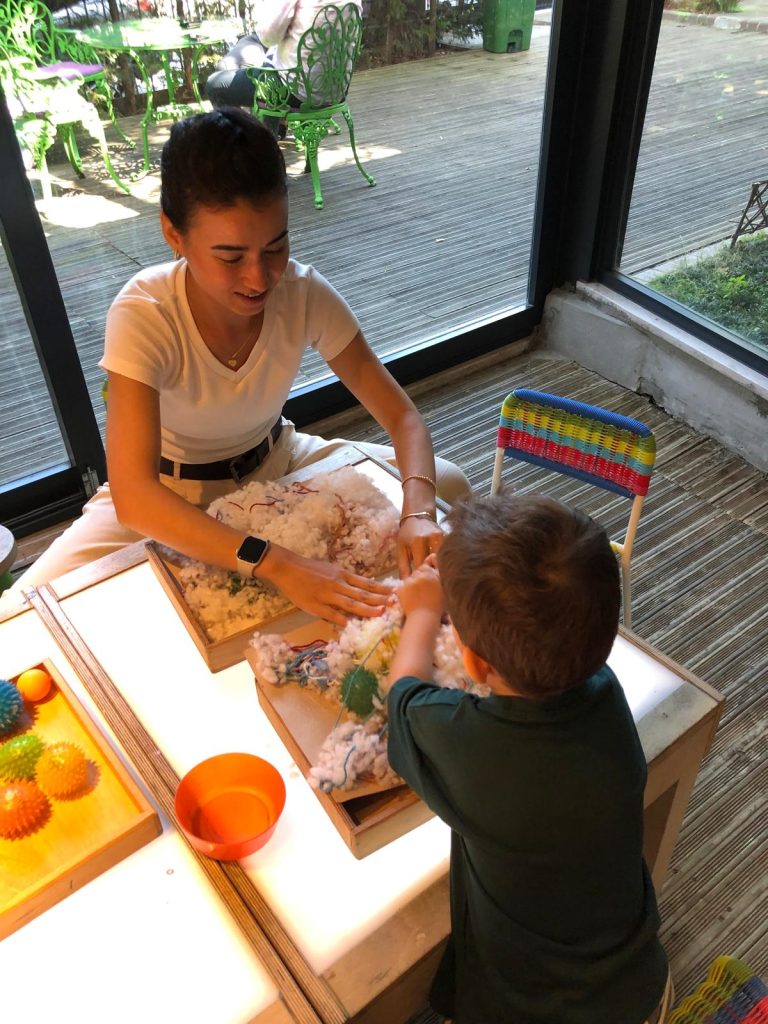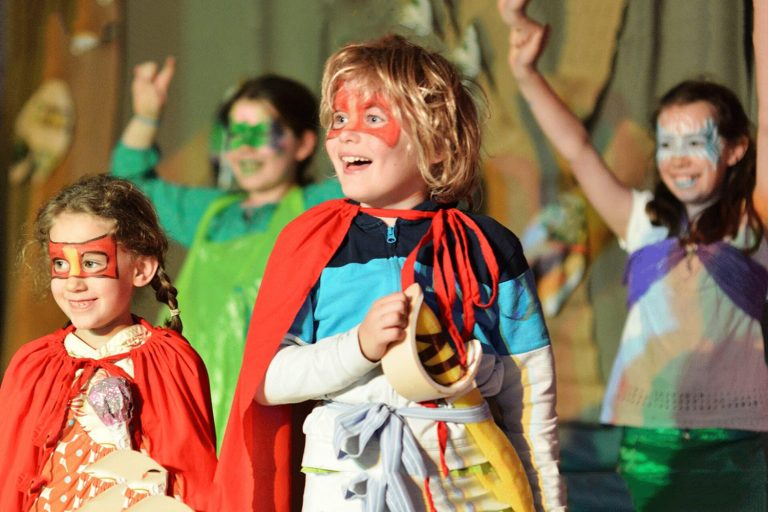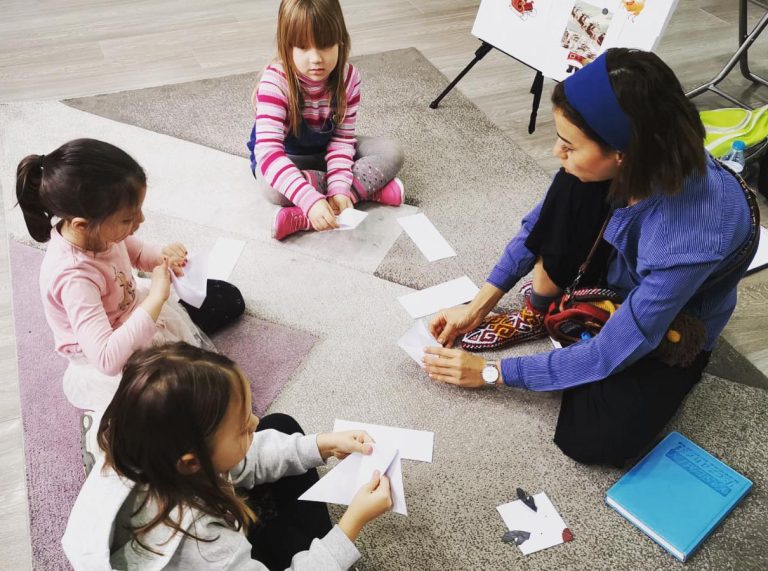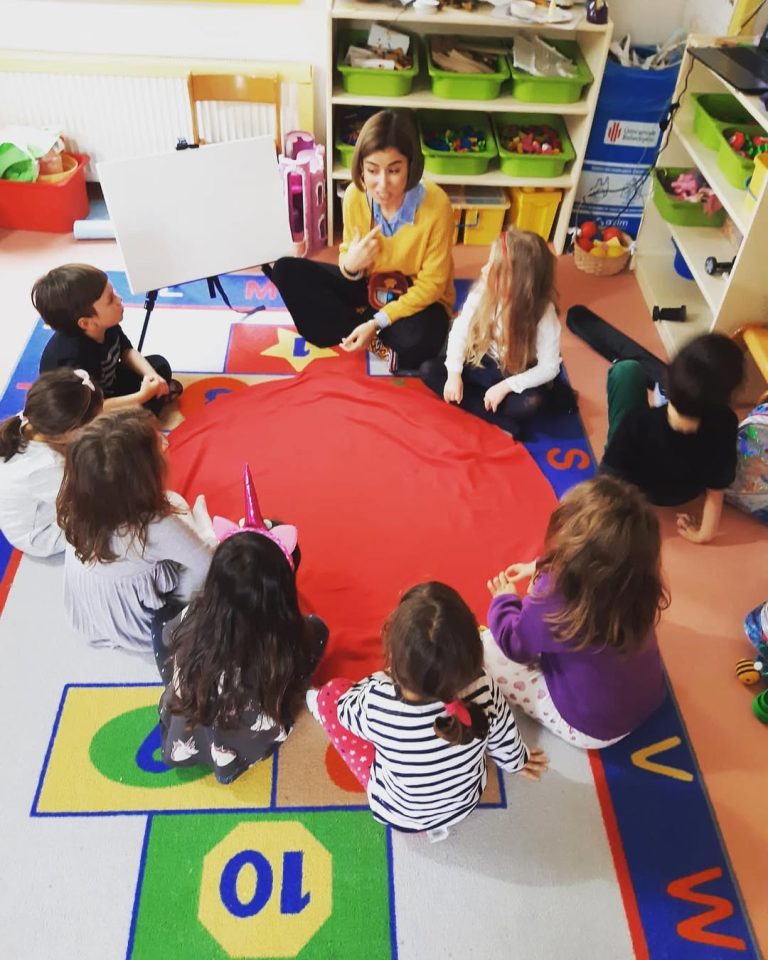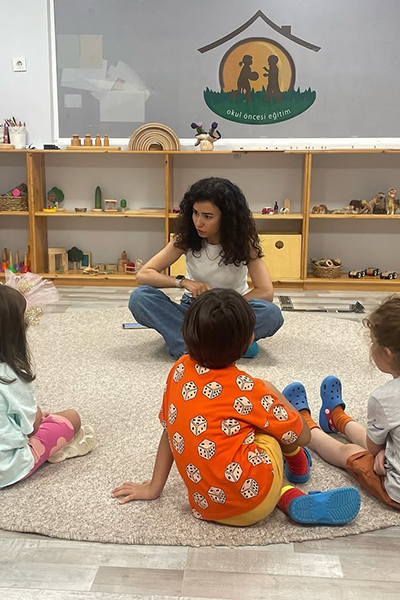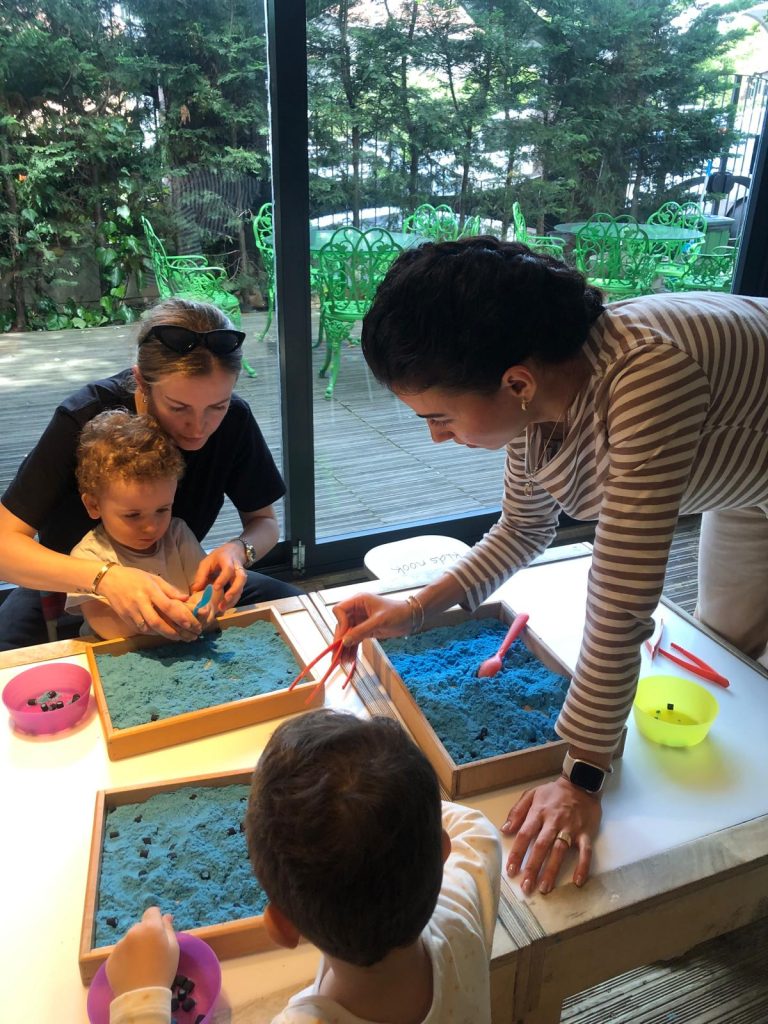Little Voices, Big Emotions: Supporting Expression in English
Children have a thousand things to say long before they master words. A glance, a gesture, a sigh, or a laugh can express an entire inner world. When we guide them in a new language like English, it is essential to give them the means to express what they feel; with their body, their heart, and their words.
In my workshops, emotional expression holds a central place. We learn to say “I’m happy,” “I’m scared,” “I don’t like it,” but also to show it with hands, face, and voice. These words are never presented as vocabulary to memorize, but as tools for connecting with others, for being understood, for fully existing.
Puppets help us express what we don’t always dare to say ourselves. Songs set emotions to rhythm. Role play allows us to explore simple everyday situations. Together, they form a global language, where the English word becomes a key rather than a barrier.
Allowing children to express their emotions in English helps them develop emotional intelligence, confidence, and the ability to build positive relationships. It offers them a language that is alive, useful, and profoundly human.

